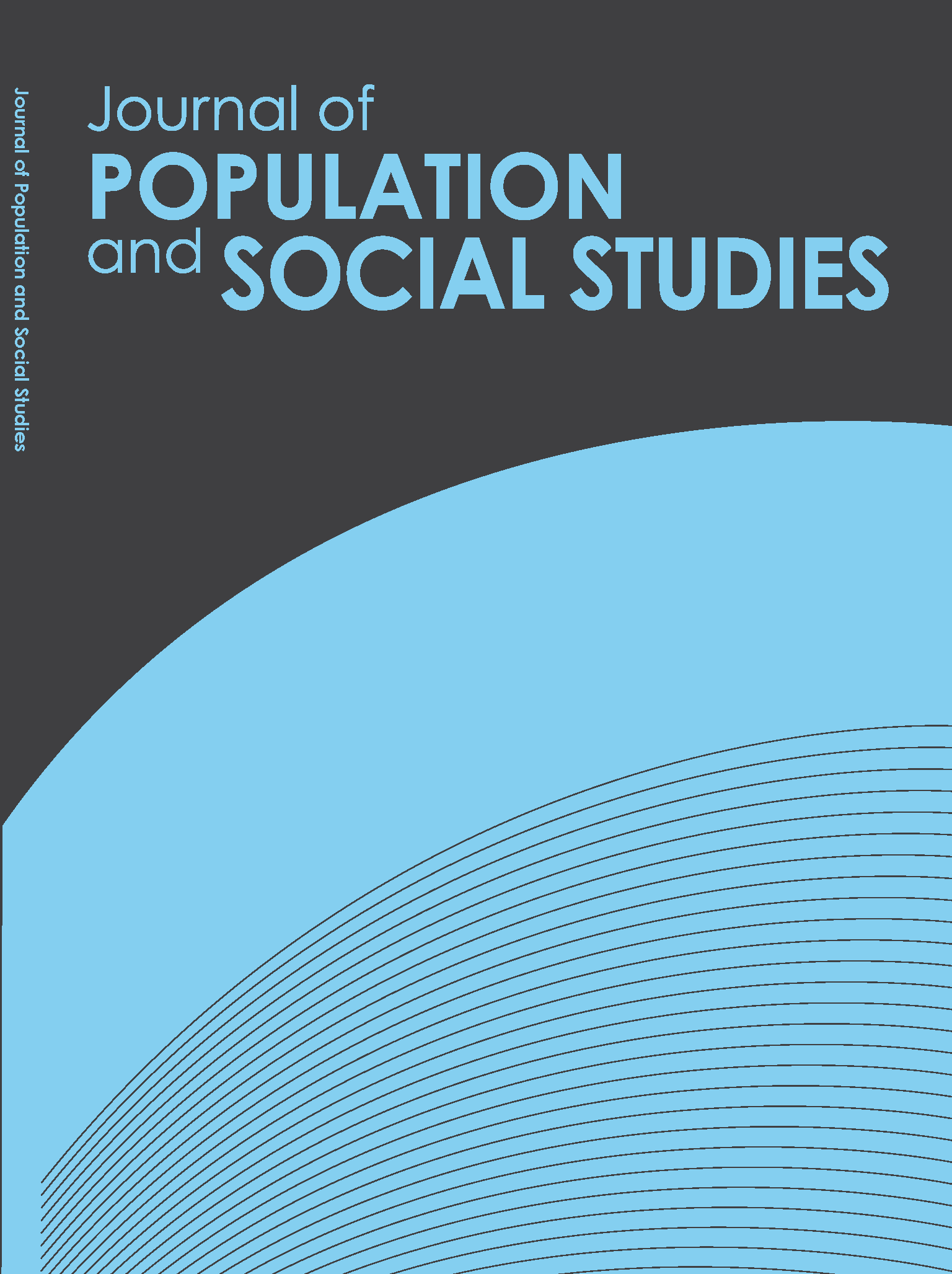Youth Non-Participation in Songkhla Province of Thailand
Main Article Content
Abstract
The objective of this study was to examine the effects of demographic and geographic factors on the prevalence of youth non-participation at work and at school using statistical models. The analysis focused on youth aged 15-17 years both absent from school and not employed in the workforce in Songkhla province. The determinants were gender, religion (Muslim or others), and geographical location based on sub-districts of Songkhla province. Data were obtained from the 2000 Population and Housing
Census of Thailand. A non-linear regression model similar to the Lee-Carter model widely used by demographers to forecast human mortality was used to define an index of disparity between genderreligion
groups that varied with location in the province. The results showed substantial differences both in the levels of non-participation between the genderreligious groups, and also widely differing disparity. The technique used in this study can identify locations where levels of both non-participation and disparity are high, and thus likely to lead to breakdowns in social order.
Census of Thailand. A non-linear regression model similar to the Lee-Carter model widely used by demographers to forecast human mortality was used to define an index of disparity between genderreligion
groups that varied with location in the province. The results showed substantial differences both in the levels of non-participation between the genderreligious groups, and also widely differing disparity. The technique used in this study can identify locations where levels of both non-participation and disparity are high, and thus likely to lead to breakdowns in social order.
Article Details
How to Cite
Suwanro, S., & Tongkumchum, P. (2011). Youth Non-Participation in Songkhla Province of Thailand. Journal of Population and Social Studies [JPSS], 19(2), 197–208. retrieved from https://so03.tci-thaijo.org/index.php/jpss/article/view/84536
Section
Research Articles


